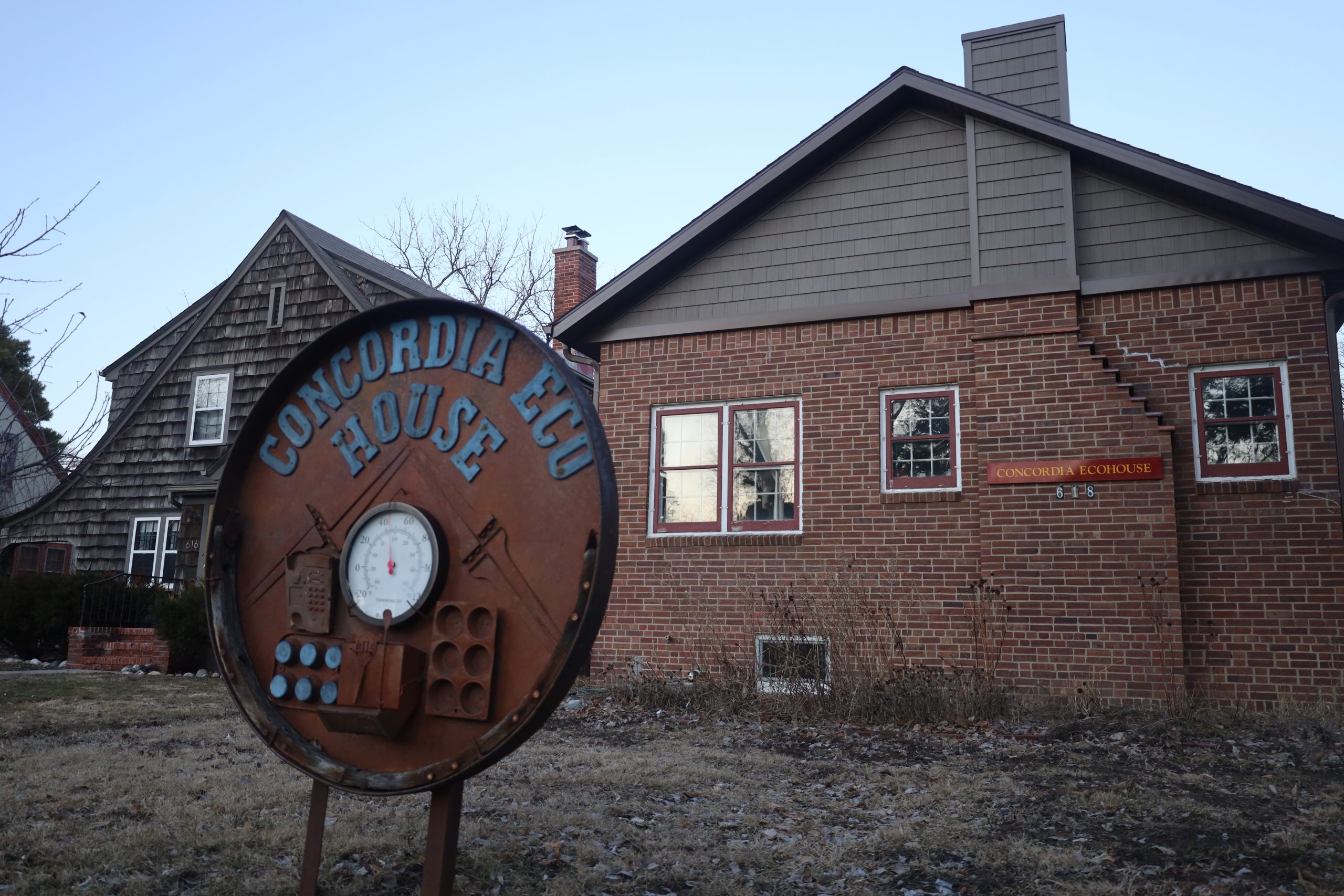As anyone who has ever had to rush from one side of campus to the other will tell you, it’s no secret that Concordia does not have a particularly compact footprint.
From Bogstad Manor on the far north end of campus to the Bucky Burgau Baseball Field on the south, the campus sprawls well over 10 city blocks. Several of the buildings are either unused or underutilized, which is a problem that Concordia seeks to remedy with its decision to discontinue the nearly decade-long EcoHouse project.
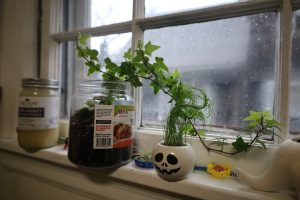
“The main factor that led to the decision is that they’re trying to consolidate housing on campus,” said Gabrielle Lommel, the sustainability coordinator for Concordia. “And I think that’s mostly because we have fewer students attending, but also because the EcoHouse only houses four students, so the impact is quite small in relation to the rest of campus.”
The EcoHouse sits just on the northern outskirts of the main campus body, a block away from the Bogstad apartments. The decade-long legacy of the house is visible both inside and out. Its goal was to create a community of like-minded individuals who care deeply about sustainable practices.
“It’s just a really good place for students to learn practical, hands-on sustainability skills that you wouldn’t get in a residence hall or anywhere else,” said Lommel.
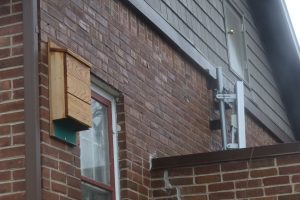
On the surface, the EcoHouse is the exact picture one would expect from a community focused on sustainable living. The walls are painted in a light mossy green, and each window is lined with plants of all shapes and sizes. A garden sits in the front yard, dormant from the harsh Minnesota winter. In the backyard, a compost pile serves as a means for green disposal.
The sustainability mindset went beyond aesthetics, however, and into practice. The house’s heating and cooling system is powered by a geothermal energy system, which redistributes air to and from the house through a series of underground pipes. These pipes use the natural heat that is stored very deep in the ground to facilitate this, as an alternative to gas.
This energy system is not just a passive benefit. Students living in the EcoHouse are encouraged to take an active role in sustainability through the methods they are charged for living there.
“You pay your rent and utilities month to month, so that way you can track, for the utilities especially, how much you’re using,” said Leo Kohorst, one of four Concordia students living in the EcoHouse this year. “And then the idea is to be mindful of that and cut back.”
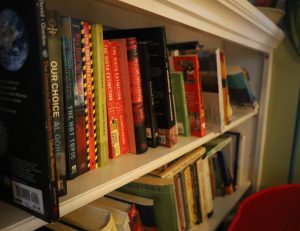
Other principles of sustainability are visible throughout the orange brick house. The old slogan of “reduce, reuse, recycle” is on broad display, particularly with regards to reusing. The house is a patchwork of upcycled projects. Since the first generation of tenants moved into the EcoHouse back in 2012, the house has never been fully cleared out. Glimpses of the past are everywhere.
“There are the remnants of other people’s projects in the basement, there’s furniture and spices and pots and plates and whatnot that people have left behind, just little bits and pieces of things,” said Bee Wright, a tenant.
A wall in the living room is dominated by a long bookshelf crammed with books on environmentalism and ecology left behind by Cobbers gone by. The bottom shelf is packed with dossiers covering some of the student-led research projects that are necessary to live in the EcoHouse.
“We have a couple project requirements to live in the EcoHouse,” said Kohorst. “We each have an individual project we are required to do, and then as a house we collaborate on our one event a semester that works to raise awareness for both the house and sustainability.”
The basement serves as a tomb for these discarded projects. A worm farm lays empty, torn apart into several boxes. A crate of saved-up egg cartons sits next to it, waiting to be turned into paper. A pile of discarded protest signs lies between them. “Our climate is changing – why aren’t we?” asks one.
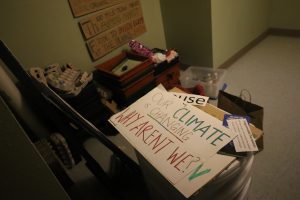
As for the group project requirement, the four tenants got together to organize a sustainability-focused movie night and plant exchange during the fall semester. One person came.
“The decision also comes from a desire to streamline budgets and operations,” said Lommel. “There’s a lot of people who had to be involved in the EcoHouse – Facilities, Sustainability, Residence Life – lots of organizations involved for a house of four students.”
This desire to streamline also comes from a simple reality: Concordia’s enrollment is dropping.
“At one point we were housing nearly 1,800 students. That’s our total enrollment right now,” said Mikal Kenfield, the assistant dean of students and residence life. “We used to be so full that students were living in the floor lounges.”

Sydney Stock, who lived in the EcoHouse last school year said the brick home “represents a legacy of strong-willed, dedicated and intelligent residents” and taking part in to reside there was such a gift.” Since graduating, she is now a member of Green Corps, a Minnesota environmental sustainability organization and pollution control agency.
Stock recalled when she lived in the EcoHouse in summer of 2020, when no one else lived there. She enjoyed taking care of the garden in the backyard.
“Planting vegetables and tending to flowers was such a fulfilling experience that I really cherish.”
With fewer students comes a need for different strategies. Decisions have to be made about which buildings to open, and which to close. And in the campus-wide game of musical chairs, the EcoHouse was left without a seat.

